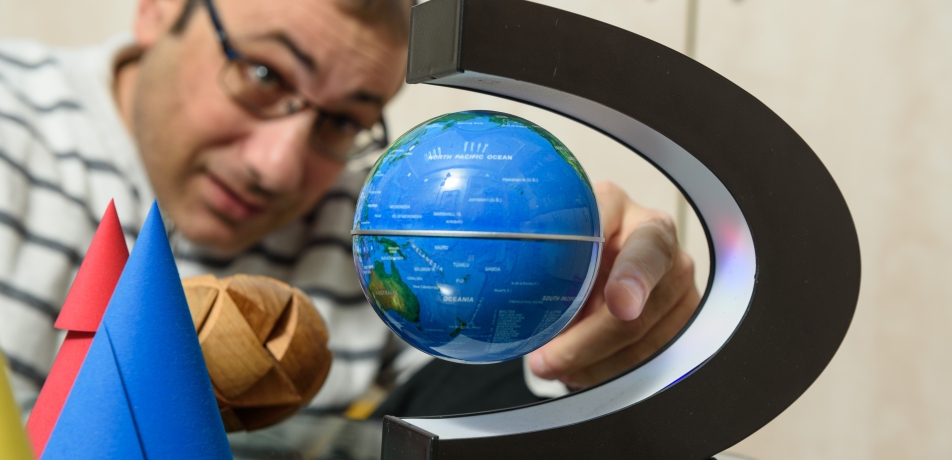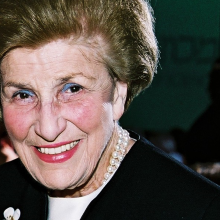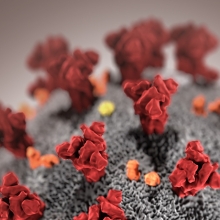Innovation takes flight
The Davidson Institute's new Innovation Center gives ideas wings
Features

Dr. Yossi Elran, Director of the Innovation Center for Science Education.
Plenty of scientists and educators have ideas bubbling on the back burner—perhaps an app for teaching physics, a new way to chart climate patterns, or a research partnership with a local startup—but how do they take these concepts and develop them into tangible projects? How do they figure out if their ideas are even feasible or worthwhile to begin with? Enter the incubator for these inspired brainchildren—the Davidson Institute of Science Education’s new Innovation Center.
Envisioned as a research, development, and integration hub for entrepreneurship in science education, the Innovation Center identifies groundbreaking ideas and facilitates collaboration. At the helm of this group is Dr. Yossi Elran, who recently recruited four highly qualified individuals well-versed in science, science education, and innovation. Among them is a researcher with a PhD in physics who was the lead scientist for MadaTech – the Israel National Museum of Science, Technology, and Space; a leader in science education who served as an expert advisor to the Israel Defense Forces’ Air Force Training Department; and a former research assistant for the Human Genome Project at the Weizmann Institute.
The Center’s distinguished team identifies promising, creative initiatives from within the Davidson Institute, the Weizmann Institute or outside opportunities, offers guidance in nurturing, pitching, and assessing the sustainability of these ideas, and fosters partnerships between Weizmann scientists, Davidson personnel, and beyond.
When Dr. Elran and his team began scanning the Weizmann landscape, they found that many scientists already had innovative projects underway. Prof. Uri Bader of the Department of Mathematics, for example, had created a game app to teach kids linear algebra. But it was just sitting on his desk. How could he get it out there for youngsters to actually use?
“That’s where the Innovation Center comes in,” says Dr. Elran. “We’re here to bridge, to make connections, to take ideas and make them happen.”
One of the first projects to emerge from the Innovation Center is a series of videos made in collaboration with El Al Israel Airlines, explaining the science behind the newest member of their fleet: the Dreamliner. The video clips are on the Davidson website, and will soon be aired in-flight on El Al Dreamliners.
In another project, the Innovation Center is fostering a partnership between Prof. Ron Milo and Dr. Tamir Klein, both of the Department of Plant and Environmental Sciences, several Davidson programs, the Rehovot Municipality, and the Israel Nature and Parks Authority to study and preserve the only vernal pool in Rehovot—a seasonal wetland that provides a natural habitat for distinct flora and fauna in the winter. Local high school students will take samples, work with scientists, and raise awareness to prevent this unique wetland from being developed.
“Many Weizmann scientists are interested in education—even passionate about it,” says Dr. Elran. “Many of them studied here at the Davidson Institute when they were young. And today they have a sense of social responsibility for raising the next generation of scientists.”








